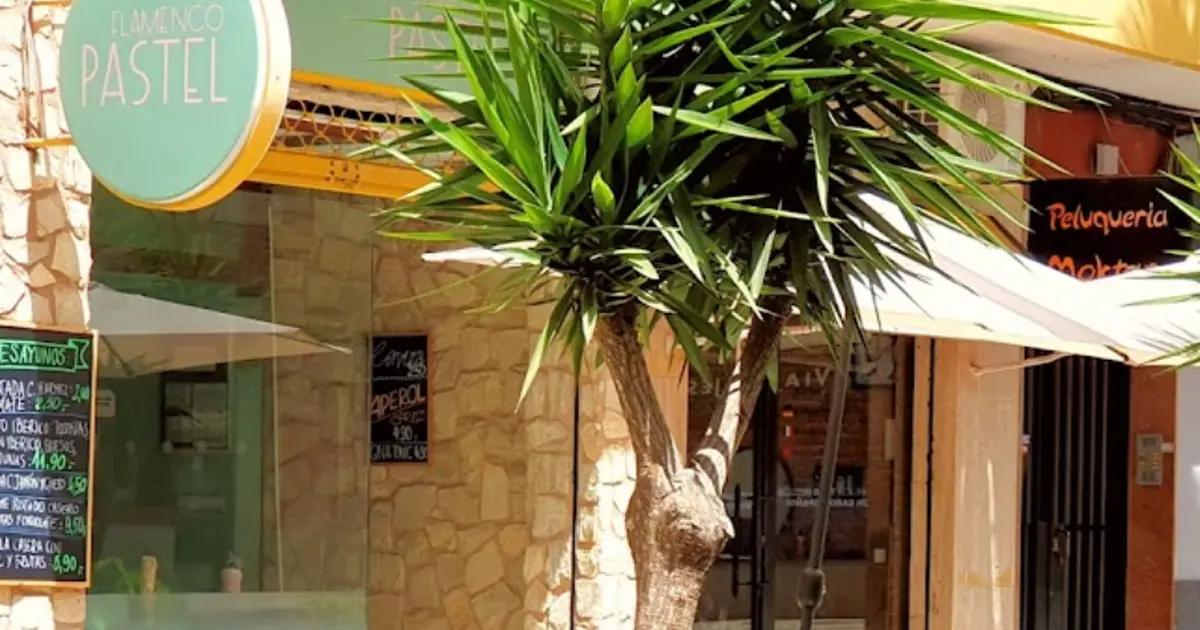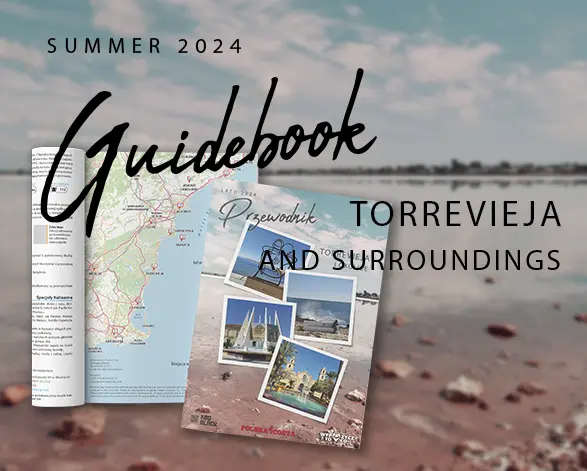
Sweet Success in Spain: The History of El Flamenco Pastel
You have been living in Torrevieja for more than two years. In your case, what made you decide to move to Spain?
Greg: We hear this question practically every day.
Emil: They are asked by visitors to our cafe - Poles who, like us, left Poland with the intention of settling in Spain, as well as those who spend their vacations on the Costa Blanca.
Greg: The answer is not simple and straightforward: I think that in my case it's professional burnout and the desire to start life in another place that does not force you to constantly chase money, to live “beyond your means.” It is true that life here is simply slower. It is forced by the climate, the people, the cultural difference. We left Poland when the war in Ukraine began, and the political climate did not suit our preferences or lifestyle very well. We felt we didn't fit into that Poland. And why did the choice fall on Torrevieja? Given the economic factor and (then still) quite attractive real estate prices - it was natural, that this is where we begin our Spanish epic. Where fate will lead us - we don't know yet. But we want to stay on the beautiful Costa Blanca, where the sun shines 340 days a year.
Where did you get the idea for the cafe, why did you decide to go into this particular industry?
Emil: I have always enjoyed preparing sweet baked goods, in Poland my cakes reigned supreme at all family celebrations and also at birthday parties of my friends or colleagues. Having a stable job and a steady income I made my baked goods as a hobby. Moving to Torrevieja, Grzesiek and I noticed that there were no places with good sweet baked goods in this tourist town, or simply that Spanish tastes and taste preferences were different from ours. Combining my skills in preparing sweets and some experience in gastronomy brought back from Poland, along with Grzegorz's love of coffee and desire to meet new people, we decided to open a café.
Have you encountered any difficulties in moving or starting a business?
Greg: I always say that the key to success is to surround yourself with the right people. That was the case when, while looking for a property to buy, we came across an extremely professional real estate agency with agents who were nice and well-prepared for their work. To date, we have maintained a social relationship with most of the crew. The buying process and getting through the Spanish bureaucracy took place practically without our participation. Then it was just a matter of doing the renovation, which we mostly did with our own hands, and you could move into the house.
Emil: It was already a little more difficult with the start of the business, but again we ended up with the right person: “a Polish accountant” who has lived here for years. She was the one who guided us through the entire process of starting our business. Of course, we had a few slip-ups, paid our fare share of ignorance of the rules and unwritten customs. Some things also dragged on a lot. Now we know that you need to have a lot of patience when working with Spanish companies. We are still learning that it is not worth assuming that something can be done as it is in Poland, or that something that worked there will also work here in Spain.
Your café has just celebrated its first anniversary of opening. What has this year been like for you in business?
Greg: It was a year of learning, getting to know the market, making friends with neighbors and visitors who began to visit us regularly. During this time, we also learned about the culinary habits and tastes of Spaniards. The characteristics of working in gastronomy in Spain are different from what we know in Poland. Our strength turned out to be decision-making independence: working every day, we had the ability to make necessary decisions, make changes, and respond to challenges almost immediately. Throughout the year, we pursued our original goal: to serve delicious food that we ourselves would like to eat. Of course, we did this while respecting the local gastronomic tradition. We managed to achieve this, even though, as a well-known Polish restaurateur says: “gastronomy is an envious lover” and we had to put a lot of work into it really.
Do you notice any differences in the culinary tastes of Poles and Spaniards?
Emil: Definitely! After a year of running the cafe, we can confidently say that we as Poles like flavors that are more robust and diverse. We like to have an array of flavors and aromas on our plates. We love things that are sweet, sour, bitter, spicy and all with fresh fruits or herbs, and we often use intense spices. We are not afraid to experiment and try the flavors of other cultures. Spaniards are more basic and attached to their tastes, they very rarely want to try new things. If they have breakfast it's just tostada with tomatoes and olive oil and the more strongly seasoned dishes on our menu are usually skipped by them. If they eat something sweet, it must be really sweet. They are more likely to opt for simple and uniform flavors, reach for desserts that are mostly vanilla or chocolate and fruit toppings or multi-ingredient desserts are not appealing to them.
Does your cafe stand out from those offered by the Spanish?
Emil: There's no denying that the town we live in is a tourist destination, which pulls certain patterns. Most cafes or bars want to make a quick buck on tourists by selling them ready-made products supplied by a larger, mass producer. Often these products have preservatives, are frozen and of questionable quality. We too, when opening “El Flamenco Pastel,” got a lot of proposals from such companies, but we knew from the beginning that we wanted to go against the grain and have an offer that would attract guests permanently. We want our guests to appreciate the quality, the taste and the homey atmosphere we have, so we created a café a little different from the local ones. Our breakfasts and desserts we prepare from fresh products. In doing so, we try not to overuse sugar, and we do not use any artificial preservatives. We are also distinguished by the fact that there are only two of us working in the cafe, which allows us to get to know our guests better, with whom we talk a lot and then often keep in touch. I think all this allows us to distinguish ourselves from others.
Do you have any tips on food in general for Compatriots traveling to Spain?
Greg: It will be easiest to encapsulate the answer in a few sub-points:
- Avoid the most touristy places such as markets of large cities or seaside promenades.
- Verify restaurants or cafes based on “Google maps”.
- Ask on Polish social media groups, compatriots living here will certainly be happy to advise something.
- Check places recommended by “Polska Costa”
- Avoid places where the menu has so many items that studying it starts to bore you after five minutes.
- It's worth a walk to the restroom; if cleanliness and hygiene aren't taken care of there, the kitchen probably isn't either.
- But most important: let yourself be carried away by the charm of discovery. Do not be afraid to try new things, to experiment. In Torrevieja, the gastronomic offer is so rich that everyone will experience an unforgettable culinary journey here. And the fact that sometimes one will stray? Hardly - getting lost is also a certain form of entertainment (he laughs)
What can we wish you for the next year of operations?
Greg: I will ask for a little more calmness and the ability to control myself - I often lack that. Spaniards are able to go over many things without emotion - I'm just learning that!
Emil: I need more perseverance in pursuing my goals, but I also wouldn't disdain a head full of new ideas for my baked goods and desserts. Both of us would also certainly wish for plenty of endless inspiration and motivation to keep growing.
So we wish you all this and thank you for the interview.








